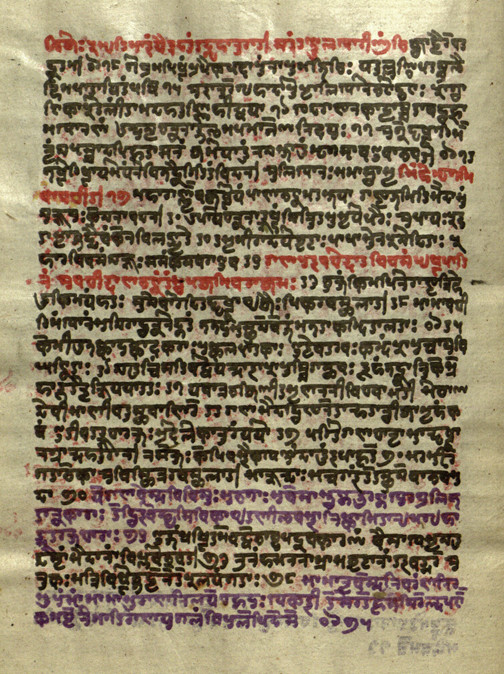Startpage » Usage + Visit » Subject Specific Services » Subject Information » Indology/South Asian Studies
Overview
Contact
This link leads to a list of all the subjects this person oversees.
Here you find the contact information of the above-mentioned person.
Library Holdings and Acquisitions
The collection mainly consists of specialised literature, including numerous primary sources in classical and modern languages of South Asia. Concerning the latter, the focus lies particularly on literature from Bengal and in Hindi on questions of literature, culture, and politics. Concerning the field of classical Indology, editions and translations of important religious, literary, philological and historiographical source works as well as secondary publications (mainly in English) on philology, history, culture and religion of India as well as on society and politics of modern times dominate the holdings. The current collection foci are aligned with the research profiles of the Department of South Asian Studies and Indology.
Finding and Using
The stock of modern titles on Indology and South Asian Studies is mainly located in the Branch Library Steintor-Campus and completely electronically indexed. The indological holdings of the DMG library are shelved in the stacks of the Branch Library Middle East/Ethnology and thus have to be ordered from there via Ha:lit. The lending of requested media is therefore taking place at the circulation desk of the Branch Library Steintor-Campus. When researching titles in non-Latin scripts, please be aware of the transcription regulations applied in the German library system.
Books acquired up to 2014 are shelved according to an individual classification system.
Books acquired from 2015 onwards are shelved according to the Regensburger Verbundsklassifikation (RVK).
Consultation and Training Services
Library introductions, training courses for literature research and literature management systems as well as consultations on publication strategies and research data management take place at regular intervals.
Collection of Subject-Relevant Links
The Specialised Information Service FID4SA provides national research literature via interlibrary loan and supports electronic publishing in open access as well as the digitization of research-relevant holdings.
Electronically available journals of the specific subject are indexed in the Electronic Journals Library (EZB).
There are numerous specialized databases available for researching information. These are researchable via the Database Information System (DBIS). Especially noteworthy is the online database SARDS set up by the MLU , providing bibliographical records of around 93,000 dependent research papers.
Please remember to activate the VPN connection when researching outside of reach of the university wifi.
History and Profiling of the Subject
The study of South Asian languages at the MLU emerged around the beginning of the 19th century as a branch of the study of general linguistics. Since 1833, leading representatives of Indology worked at the MLU, such as August Friedrich Pott or Berthold Delbrück, whose studies gradually detached Indology from general Indo-Germanic studies and helped establish it as an independent subject.
Thus, in the second half of the 19th century, the University of Halle had the reputation of being one of the most important locations for indological research. The stock of indological literature in the library of the German Oriental Society continuously increased during the 19th and early 20th century. In consequence, the ULB now has a large number of premium old stock in this subject area at their disposal. After 1945, it was initially possible to only acquire specialist literature on Indology up to a very limited extent. It was not until 1992 that the Chair of Indology was re-established, which was supplemented in 2000 by an independent Chair of South Asian Studies (with a focus on New Indian philology). Since 1992, significant gaps in the Indological research literature could be closed but also research-relevant new publications could be acquired, so, in addition to the mentioned old stock of the DMG, approx. 30,000 volumes of modern literature are also available.



